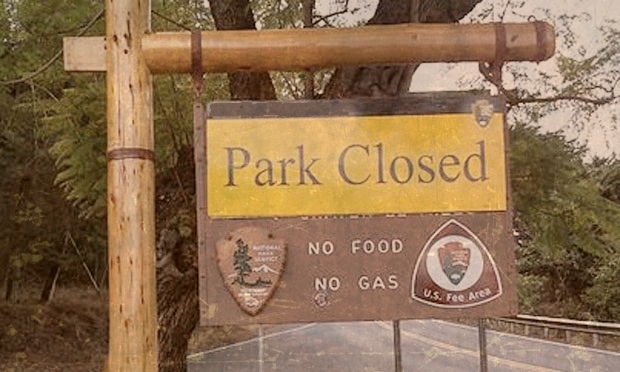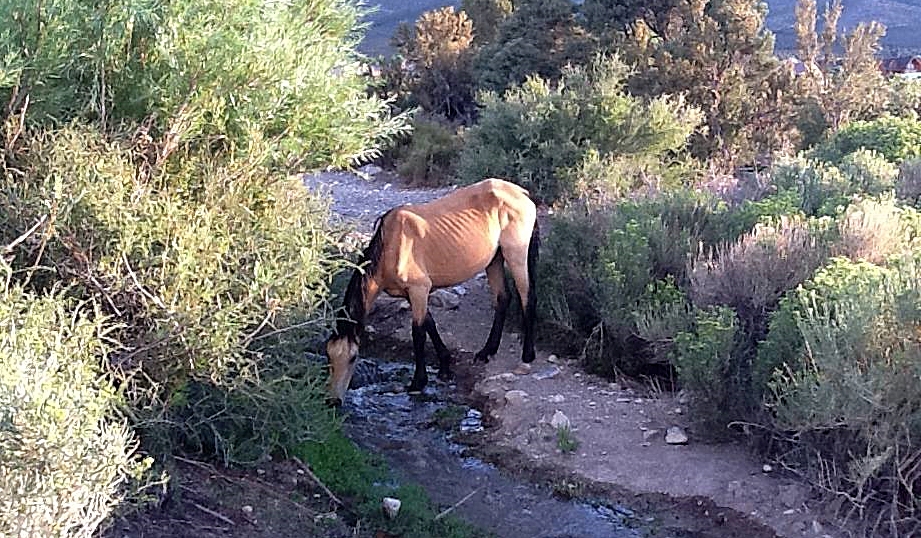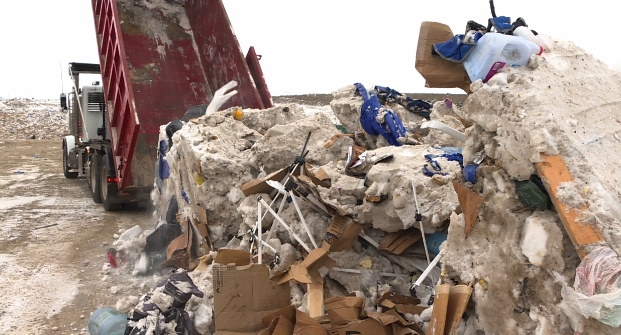“The most common complaint I hear from locally elected officials in my district is that they are rarely consulted, rarely respected and often bypassed by federal land managers in the decisions that directly affect their communities and their local economies.”
Congressman Tom McClintock
On October 28, National Parks Traveler published a piece detailing the ‘transfer’ of 22,500 acres of Bureau of Land Management-controlled lands to the National Parks Service for the expansion of Joshua Tree National Park.

The article reads, in part:
A land transfer between the U.S. Bureau of Land Management (BLM) and the National Park Service (NPS) is underway, one that would return roughly 22,500 acres that originally were part of Joshua Tree National Park to the park.
U.S. Deputy Secretary of the Interior Michael L. Connor on Friday approved the first step in an effort to transfer the public lands. This transfer would provide contiguous management of important lands and resources in the Eagle Mountain area next to Joshua Tree National Park, an Interior Department release said.
“National parks and other public lands are intimately connected to the communities and landscapes beyond their borders, and today’s announcement marks the first step in a process to more fully protect important areas near Joshua Tree, one of our nation’s iconic parks,” said Deputy Secretary Connor. “We look forward to thoughtful dialogue with the public and stakeholders on effectively managing and conserving this critical area. “
The BLM and the National Park Service are jointly working on the proposed withdrawal. Friday’s approval is the first step in the withdrawal process, and initiates a segregation of the public lands that withdraws those lands from the operation of the mining and mineral materials law. The segregation is intended to preserve the status quo while the withdrawal process is under review.
Behind this and similar land transfers, or ‘withdrawals,’ is the National Parks Conservation Association, a non-governmental ‘conservation’ group which lobbies forcefully for the expansion of existing national parks and the designation of new national parks and monuments through various executive and congressional means.
This issue is significant because the restrictions for National Park lands are much greater than those simply managed by the BLM. As the article above states, BLM lands transferred to National Parks ‘segregate’ the lands, prohibiting mineral extraction, and other forms of economic development.
This process of transfer from one Interior Department agency to another, sidesteps the typical process for creating or expanding national parks. Congress must have sponsors in both the House of Representatives and the Senate to propose a new national park, giving citizens some say in whether or not lands have the severe restrictions that come with a National Parks designation.
Due to the fact that grazing, energy development, and other activities allowed on BLM-managed lands could be stripped away with a National Parks designation, Free Range Report questioned the legality of the transfer. We approached the office of Representative Tom McClintock (California D-4), who is currently the chairman of the House Natural Resources Federal Lands Subcommittee. Representative McClintock personally answered our question about the legality of the transfer, with the following:
The short answer to your question is yes, it is legal. The authority for NPS to accept the BLM-transferred land is found at 54 USC 100506. As long as the land is donated, federal land managers can accept virtually unlimited amounts of land.
The Federal Lands Sub-committee and the full Natural Resources Committee have become increasingly concerned over these transfers, given the enormous percentage of lands the federal government already controls in the western states and the growing maintenance backlog. We recently considered the LOCAL Act that would give certain counties and local elected officials more say in federal land management. We also added language further restricting the agency’s abilities to acquire land by donation or exchange.
Congressman McClintock also provided Free Range Report with the text of his statements from a hearing last April in the House of Representatives in which he argued on behalf of legislation to address the expanding size and restrictions of federal lands:
Chairman’s Opening Statement
Subcommittee on Federal Lands
House Natural Resources Committee
April 28th, 2016
Today the Subcommittee on Federal Lands meets to consider draft legislation to require federal land use agencies to more closely consult and cooperate with local governments that are directly affected by their decisions.
The three overarching objectives of this subcommittee bear repeating: to restore public access to the public lands; to restore proper management to the public lands and to restore the federal government as a good neighbor to the communities directly affected by the public lands.
Gifford Pinchot, the Father of the U.S. Forest Service, gave a series of lectures at the Yale School of Forestry, in which he propounded maxims for the “Behavior of Foresters in Public Office.”
He said,
- “A public official is there to serve the public and not run them.
- “Public support of acts affecting public rights is absolutely required.
- “It is more trouble to consult the public than to ignore them, but that is what you are hired for.
- “Find out in advance what the public will stand for. If it is right and they won’t stand for it, postpone action and educate them.
- “Get rid of an attitude of personal arrogance or pride of attainment or superior knowledge.
- “Don’t try any sly, or foxy politics. A forester is not a politician.”
The U.S. Forest Service has strayed so far from these founding principles that reading them today in any mountain community in the Sierra Nevada is guaranteed to generate derisive laughter.
The draft legislation we consider today would begin to restore what was once a close working relationship between local communities and federal land managers. Pinchot understood something that his recent successors have forgotten: that although these lands are owned by the federal government, the effects of poor management are disproportionately felt by those living on the boundaries of a National Forest or a National Park.
The most common complaint I hear from locally elected officials in my district is that they are rarely consulted, rarely respected and often bypassed by federal land managers in the decisions that directly affect their communities and their local economies.
The situation was summed up quite well by Butte County Supervisor Bill Connelly a few years ago, protesting the Forest Service’s unilateral decision to place severe restrictions on vehicle access to the Plumas National Forest. He said “The restriction applies to such activities as: collecting firewood, retrieving game, loading or unloading horses or other livestock, and camping…The National Forests are part of the local fabric. The roads within the National Forests are used by thousands of residents and visitors for transportation and recreation. These activities generate revenue for our rural communities, which are critical for their survival.”
Many of my colleagues can offer similar anecdotes about the contentious and unproductive relationship between the federal government and local communities regarding land management decisions.
Road closures; interfering with long-established community events; expelling long-standing grazing operations; harassment of residents; obstructing critically needed community infrastructure; removing tourist amenities; excessive land acquisitions that threaten the tax bases of local communities; incompetent forest management that creates severe fire danger: these are but a sampling of the constant complaints we routinely receive from the public and its locally elected representatives.
Forest Service law enforcement abuses have become so egregious in recent years that the elected sheriffs of two counties in my district have revoked permission for the Forest Service to enforce state and local laws within their jurisdictions.
We have found time and again that when federal land managers tell us they work closely with the public, they are referring not to the locally elected officials (who by definition represent the public, speak for the public and are directly answerable to the public) but rather they refer to narrow, self-appointed, ideologically extreme interest groups purporting to speak for the public.
I believe this draft legislation offers us an opportunity to restore the cooperation and comity between federal land managers and local communities that Gifford Pinchot envisioned when he founded the Forest Service. It would give communities greater say in the decisions that directly affect their economies, their residents and their quality of life, and it would begin restoring the federal government as a trusted partner and good neighbor of our mountain communities.
I look forward to hearing from our panel of witnesses for ideas about how we can improve this legislation.
As Congressman McClintock explains, cooperation between local governments and federal agencies is at an all time low, while hostilities continue to escalate. This is due in large part, to the fact that when federal agencies manage vast amounts of land and resources, state and local governments, and the citizens they represent, have little or no say about matters that effect their lives, jobs and communities; management policies, regulations, access, water, development, traffic, etc.
Americans in the West, where the BLM manages hundreds of millions of acres, should be alarmed by these quiet transfers of tens of thousands of acres out of productivity into the hands of a restrictive federal agencies. When citizens and local leaders have no knowledge of processes taking place under their noses, and no say in the resulting restrictions and limitations on economic development, culture and jobs, it’s a sure sign federal agencies have grown arrogant and dangerously unresponsive to the needs of the people whose lives they impact.
Free Range Report encourages to support Congressman McClintock and his work in behalf of local stewardship in the West.




Hope to see more of your work soon